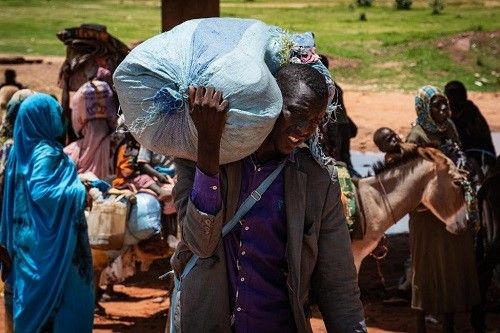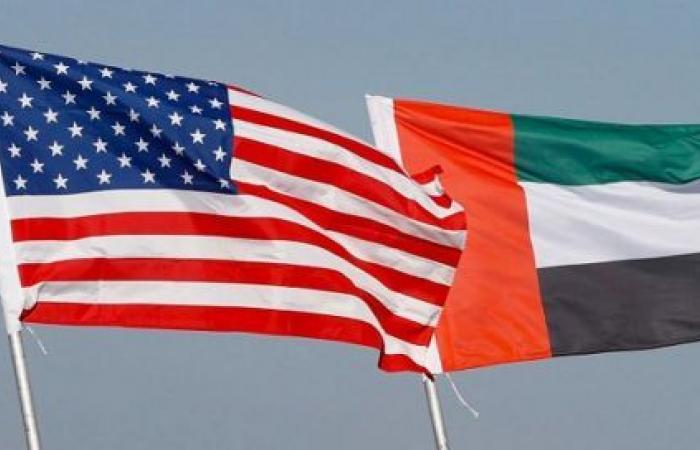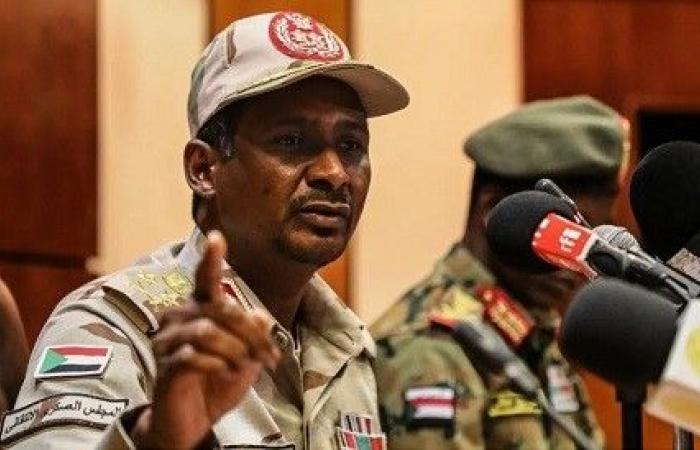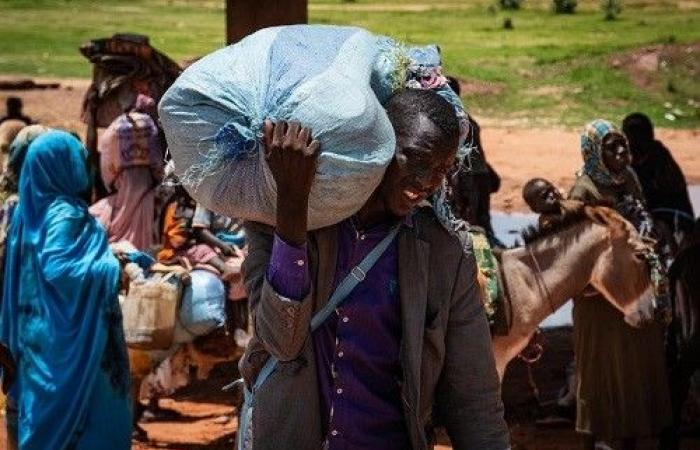(Ecofin Agency) – In Sudan, the war between Hemedti’s RSF and al-Burhan’s army has been going on since April 2023. By targeting companies accused of financially supporting the rebels, the USA is trying to weaken their military capabilities while by relaunching the debate on the role of the United Arab Emirates in this conflict.
The United States this week announced sanctions against Mohammad Hamdan Daglo Mousa (Hemedti), head of Sudan’s Rapid Support Forces (RSF), as well as 7 UAE-based companies that allegedly allowed him to finance the acquisition of arms and to continue the conflict opposing him to the army of General Abdel Fattah al-Burhan.
General Abdel Fattah al-Burhan
The details of these sanctions, intended according to Secretary of State Antony Blinken to “encourage positive behavior change”raise questions about the extent of the relationship between the Emirates and the war in Sudan.
Evocation of close ties between Hemedti and Dubai
Mohammad Hamdan Daglo Mousa, dit Hemedti
According to the U.S. Department of the Treasury, all assets of targeted individuals and entities located in the United States or under the control of U.S. persons are frozen under the sanctions. Financial institutions and individuals engaged in transactions with these entities also face punitive measures.
Companies affected by these sanctions include Capital Tap Holding, a holding company established in the Emirates and owned by Sudanese Abu Dharr, which controls more than 50 companies in around ten countries. Several of its subsidiaries are also affected, including Capital Tap Management Consultancies, Capital Tap General Trading and Horizon Advanced Solutions.
Other companies linked to the economic activities of the FSR are also targeted, notably AZ Gold, a company accused “ to buy Sudanese gold for the benefit of the FSR and transport it to Dubai “. The other 2 companies are Creative Python, accused of being “used to conceal Hemedti’s commercial activities in order to evade sanctions”, and Al Jil Al Qadem, presented as “maintaining long-standing relations with the FSR and participating in the financing of their operations”.
According to the American authorities, these different entities would have facilitated the mobilization of funds for the FSR and enabled the purchase of military equipment via complex financial flows.
Gold trade, agriculture and other issues
Since the start of the conflict between the regular Sudanese army and the RSF, the United Arab Emirates have regularly been singled out for their alleged role in indirectly financing the latter. According to several reports, Dubai is the main destination for gold illegally exported from several African countries, including Sudan.
“The largest value gap between what Sudan says it exports and what its trading partners say it imports is in trade with the Emirates” we learned in 2021 in the press, which attributed these comments to Lakshmi Kumar, of the NGO Global Financial Integrity. A report of The Sentry also published in 2021 estimated that each year, approximately 4 billion USD of gold is illegally exported from Central and East Africa (including countries like the DRC, Sudan, etc.), and that Dubai constitutes the 1is market for this illicit trade.
Beyond gold, several analysts consider that the Emirates support the RSF to guarantee their strategic interests in Sudan. These interests include access to the country’s agricultural resources. According to comments attributed to Renée Vellvé, co-founder of the NGO Grain, by International mail in an article in November 2024, “the latest major UAE investments in Sudanese agriculture focus on fodder (especially alfalfa), cereals and livestock”.
Bring peace
The new exit of the USA and the links they evoke between the RSF and Dubai raise the question of the extent of the involvement of the United Arab Emirates in this conflict. With these sanctions, Uncle Sam’s country seeks to limit the rebels’ ability to finance the war through the exploitation of Sudanese natural resources.
It remains to be seen what the real impact of these sanctions will be on the conflict. “The problem with sanctions is always whether they will actually be applied” notes Thierry Vircoulon, associate researcher at IFRI, cited by RFI. He indicates that they constitute a way for the United States to put pressure on the Emirati authorities. According to him, the application of sanctions, which he presents as above all ” symbolic “, will largely depend on the attitude of the Emirati authorities, while Dubai is presented as “main support of Hemedti”.
While waiting for a solution to this conflict, human and economic losses continue to accumulate. The war in Sudan has already caused more than 20,000 deaths according to the UN. “More than 25 million Sudanese people face acute hunger. Many are in a situation of famine […] and around 11 million have fled their homes in what has become the worst humanitarian crisis on the planet. declared Linda Thomas-Greenfield, US Ambassador to the United Nations, in September 2024.

Louis-Nino Kansoun
Edited by: Feriol Bewa
Read also:
18/11/2024 – Sudan: more than $142 million from the United Kingdom for humanitarian aid
09/26/2024 – Sudan: $424 million from the United States for humanitarian aid








